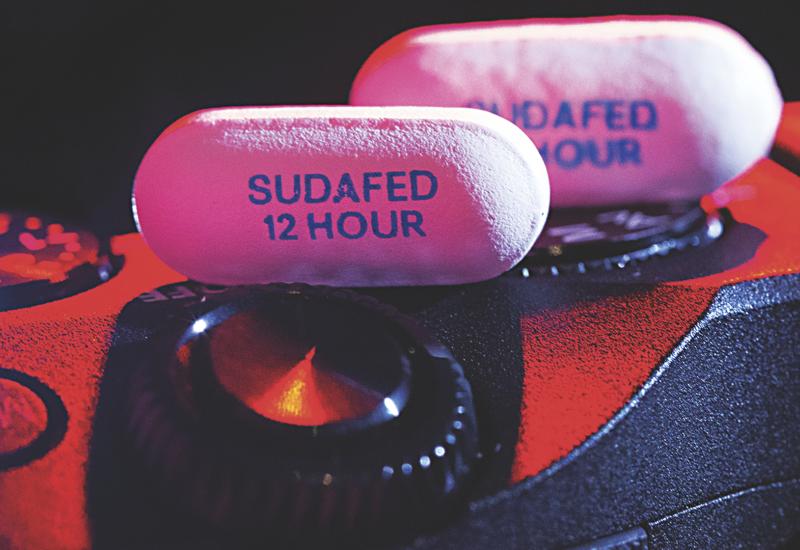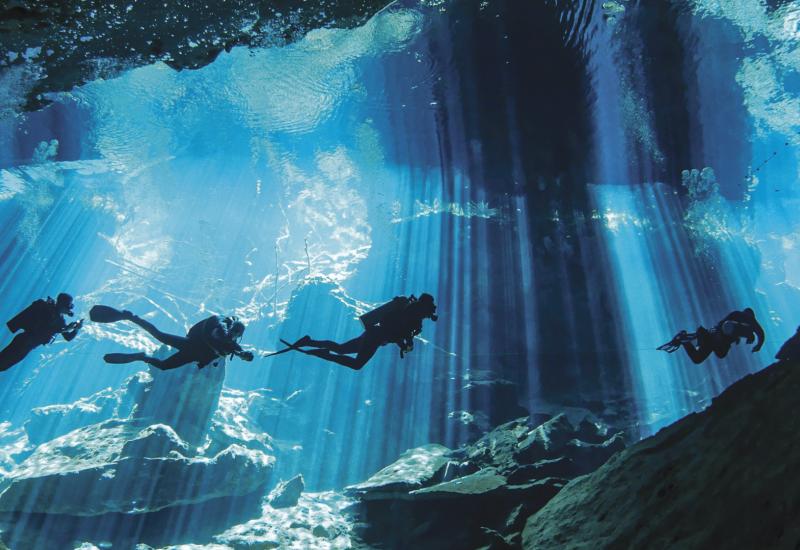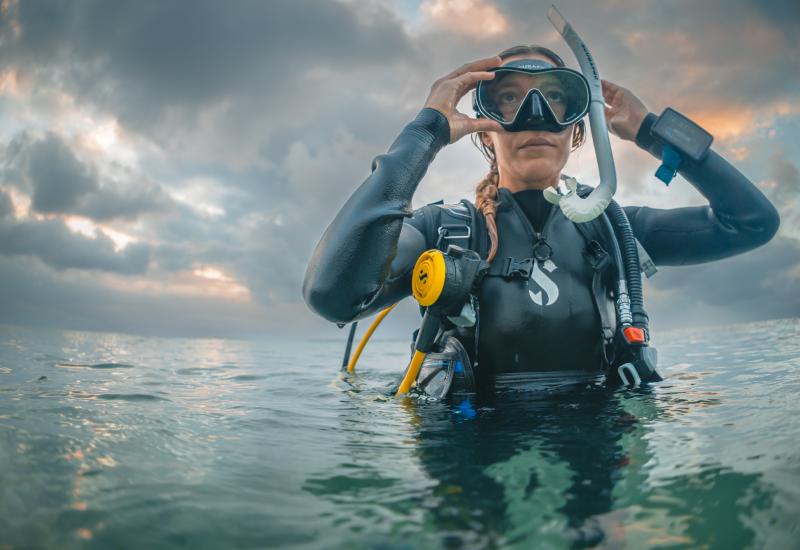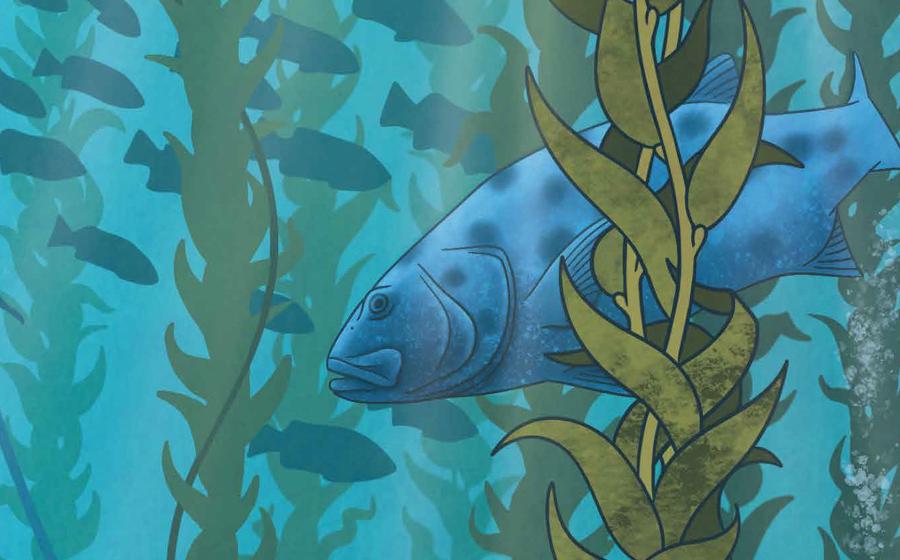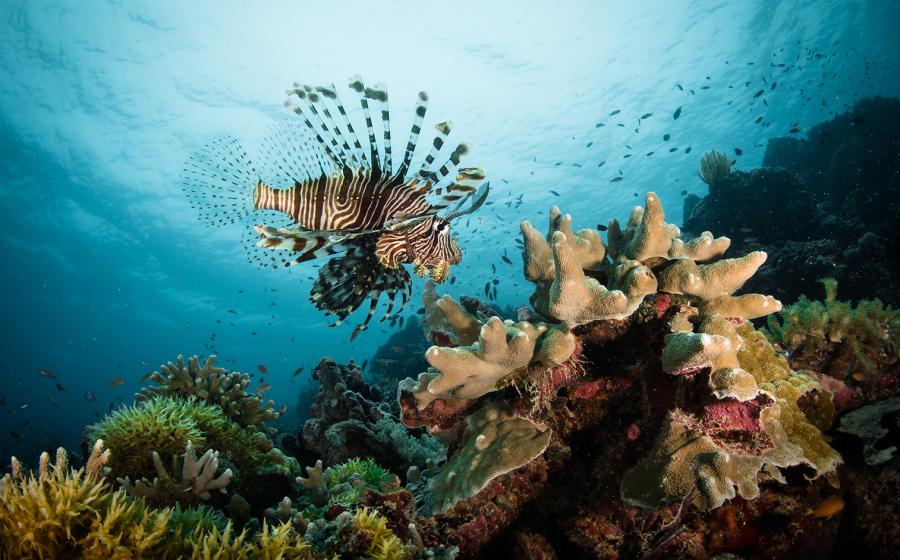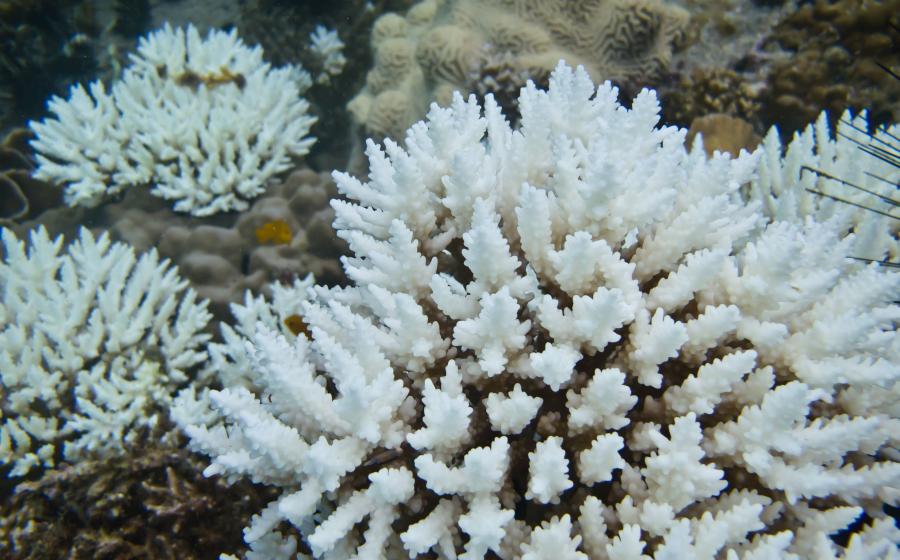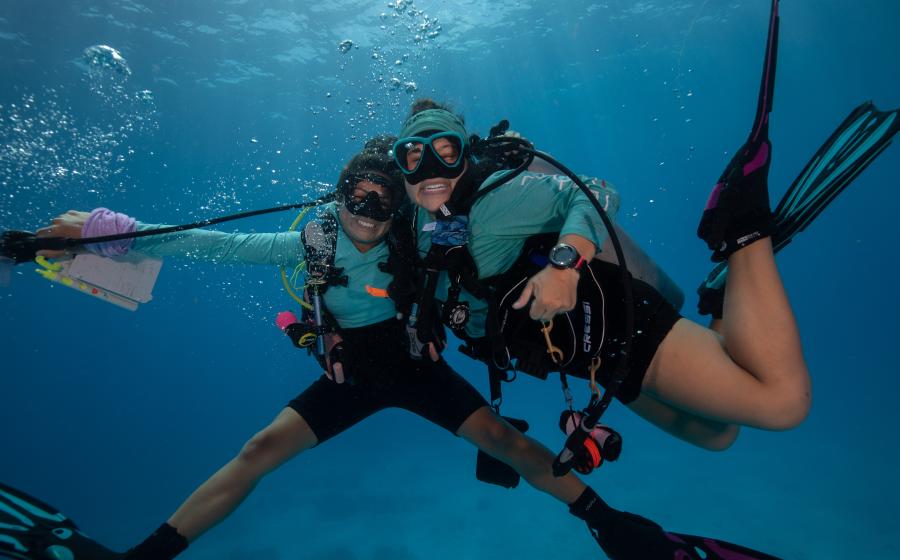How to Avoid Scuba Diving Headaches
December 2002
After diving, I often get minor to severe headaches. What's causing this?
--Madison Bradley Drawdy
Mt. Pleasant, S.C.
There are many different types of headaches, and you'll need to visit a doctor familiar with diving for a thorough examination to determine whether yours are related to diving.
Most diving headaches are caused by either carbon dioxide retention or sinus barotrauma. Here are the most common headaches resulting from diving and what you can do to prevent them.
Carbon Dioxide Headaches
Symptoms: Post-dive localized throbbing pain
The carbon dioxide headache, one of the most common for divers, is caused by an increase in the body's carbon dioxide level, which stimulates receptors in the brain's blood vessels. An increase in the brain's blood flow to these receptors leads to headaches. Typically, they are caused by a diver taking shallow sips of air, which allows carbon dioxide to accumulate. This buildup can also occur when a diver "skip breathes" by pausing after each inhalation and holding the throat closed. Taking measured, slow, complete breaths under water is the best way to avoid carbon dioxide headaches, which don't respond to analgesics or migraine medications.
Tension Headaches
Symptoms: Post-dive neck and head pain
New divers often experience tension headaches resulting from the stress of their first experiences in the underwater world. Clenched jaws and muscular stress in the neck and back of the head lead to these types of headaches, which usually disappear once the diver gains experience and becomes more relaxed under water.
Migraine Headaches
Symptoms: Severe headaches with nausea
Post-dive vomiting can be caused by a migraine headache, but, if coupled with other symptoms, could indicate a DCS headache. If the diver has a history of migraine headaches, then there could be a direct correlation between diving and the onset of the cranial pressure. Unless they are able to take measures to prevent a migraine attack, people with migraines should not dive. If the diver has migraines accompanied by visual anomalies, he should be checked for patent foramen ovale, which may be a factor in undeserved DCS hits.
DCS Headaches
Symptoms: Post-dive headache with neurological deficit
A headache that comes on strong after a dive, coupled with other symptoms like nausea, vomiting, joint pain, dizziness, ringing in the ears, muscle aches, localized swelling, itching or skin rash, could indicate the onset of Type II decompression illness or an arterial gas embolism. This, the most severe dive-related headache, requires a quick response from onboard personnel and a call to the Divers Alert Network to coordinate hyperbaric treatment.
Sinus Headaches
Symptoms: Forehead, face and eye pain during ascent or descent
A diver without a history of migraines could be suffering from a sinus headache, especially if he has a history of problems equalizing. Shifting pressure based on changes in depth without proper equalization can lead to sinus barotrauma. This pain usually spreads across the forehead and eyes. Thus, inflammation of the sinuses, caused by colds or allergies, can further complicate diving.
Post-dive Fatigue
Why am I always tired after diving? My divemaster mentioned something called post-dive fatigue. Can you help?
--Robert R. Heinlein
Crown Point, Ind.
Fatigue in divers often accompanies more acute signs and symptoms of decompression sickness. For other divers, fatigue is the only complaint. Some experts consider post-dive fatigue to be a subclinical form of DCS, possibly caused by tiny bubbles that form in the veins and then filtered out by the lungs.
Fatigue lessens when divers are recompressed, indicating that it may be caused by gas bubbles. On the other hand, anyone who spends the better part of a day out in the tropical sun and breathing compressed air under water is likely to get worn out. If you don't usually lead a fit, active lifestyle, you may just be tired.
Diving After Back Surgery
I had surgery on one of the discs in my lower back to relieve chronic sciatica. Although my back has responded well to the treatment, I am unsure when it would be wise to think about diving again. I have heard that surgery could increase my chances of getting DCS.
--Daphne Huntley
London, England
Post-surgical and healed vertebral fusions generally do not prevent divers from pursuing their favorite sport. There is a theoretical increased risk of bubble formation in regions of bone and adjacent spinal cord where there has been some disruption of blood supply. There have been no studies to prove or disprove this possibility, however.
Conventional recommendations about diving after any injury to the spinal cord are that there might be an increased risk of bubble formation at the site of the disturbed blood supply. To my knowledge, there is no evidence to this effect. However, you should consider the risk of an increased incidence of spinal decompression illness and that this risk may be reduced by limiting depth and frequency of dives, using slow ascents and making a safety stop before surfacing.
If you dive, you may have to make adjustments because of the weight-bearing, climbing and hyperextended neck position that is required with scuba diving. You might want to don and doff your gear in the water to avoid excessive weight-bearing, for instance.
There should, however, be no ill effects caused by depth and pressure on the disc herniation. Once your surgeon has cleared you for diving, after you've healed and rehabilitation has occurred, you should be able to dive again (usually six to eight weeks post-op).
It's wise to have a neurological examination carefully recorded to take with you on your dives for comparison reference in case of a decompression accident.
For more information, see the results at www.scuba-doc.com/hern.htm.
Old and Wiser Diver
I am 68-year-old diver in good physical health. I run 20 miles a week and am presently training for a half-marathon. I got certified in 1995 and have 125 dives in total. Is there a strategy that will allow me to reduce my DCS risk while diving?
--Pete Lighthall
Ontario, Canada
You are to be congratulated on keeping yourself in good physical condition. Some people believe that you should gradually reduce the depth and times of dives as you grow older; others feel that you should lengthen safety stops and surface intervals. The only proven ways to reduce your risk of DCS are using nitrox on air tables and not diving at all.
Aging imposes some added risks to divers, but most older divers alter their activities to take these factors into consideration. These include arthritis, heart problems, diabetes and obesity, hardening of the blood vessels in the brain, visual problems and the ever-present specter of cancer. The risk of DCS is thought to increase with age and Carl Edmonds in Diving and Subaquatic Medicine suggests that bottom times should be reduced by 10 percent for each decade of life after 30. Heart problems are by far the most serious of the age-related changes, and probably accounts for the largest number of diving deaths. For this reason, it is recommended that divers over the age of 40 undergo regular cardiac exams.
Divers Alert Network is currently conducting an Aging Diver Study based on actual dives by recreational divers. They are testing the hypothesis that the risk for older divers is the same as that for younger divers. Look for the results of this study in an upcoming issue of Rodale's Scuba Diving.
Questions and responses have been edited by Ernest S. Campbell, M.D., FACS, a retired surgeon, avid diver and webmaster of "Diving Medicine Online" (www.scuba-doc.com).
Ed.'s note: Answers to questions are offered as information only and not as medical diagnosis or advice and should always be used in conjunction with advice from your personal diving physician. Please send your dive medicine questions to [email protected].
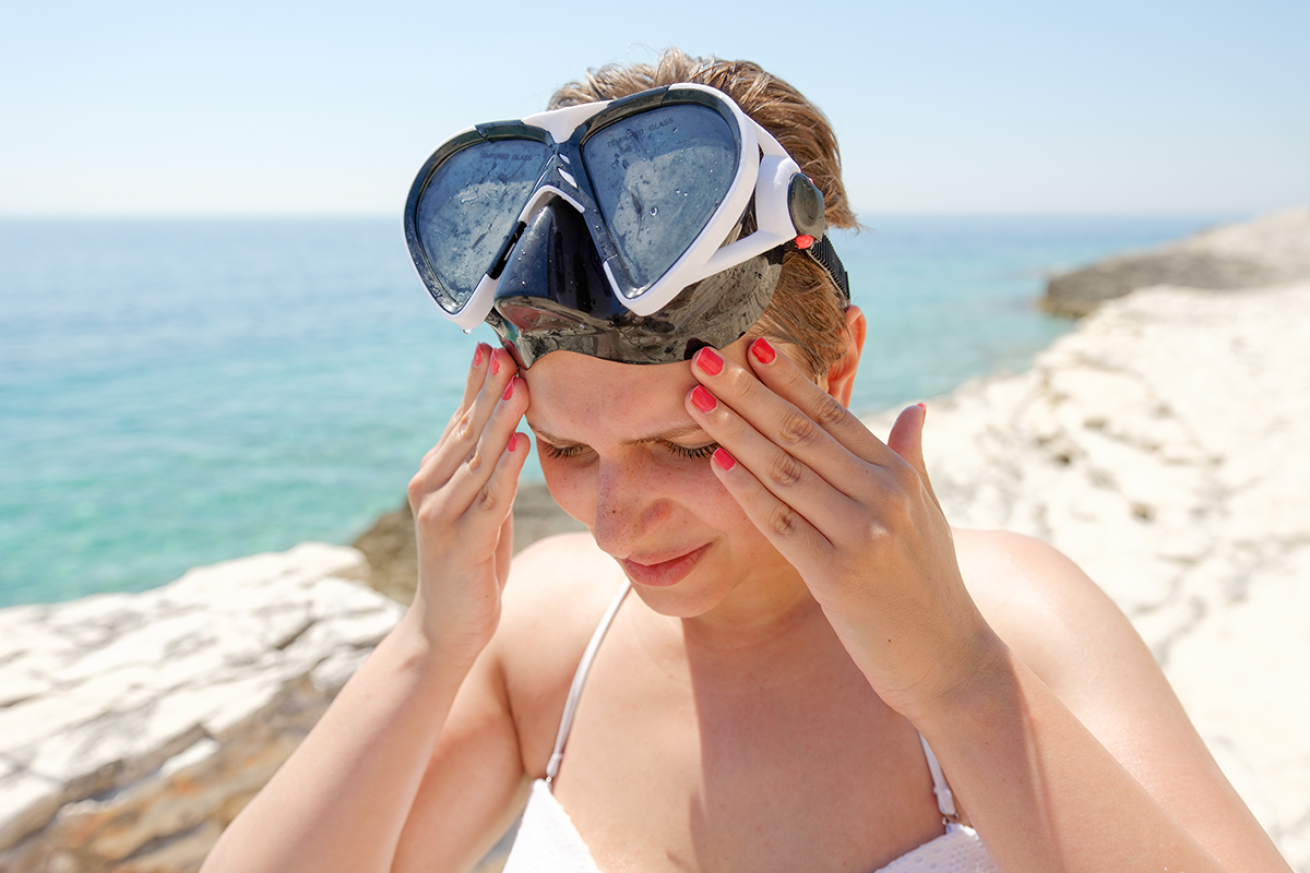
Shutterstock.com/SvedOliverPost-dive headaches are avoidable.
There are many different types of diving headaches, and you'll need to visit a doctor familiar with diving for a thorough examination to determine whether yours are related to diving.
Most diving headaches are caused by either carbon dioxide retention or sinus barotrauma. Here are the most common headaches after scuba diving and what you can do to prevent them.
Carbon Dioxide Headaches
Symptoms: Post-dive localized throbbing pain
The carbon dioxide headache, one of the most common for divers, is caused by an increase in the body's carbon dioxide level, which stimulates receptors in the brain's blood vessels. An increase in the brain's blood flow to these receptors leads to headaches. Typically, they are caused by a diver taking shallow sips of air, which allows carbon dioxide to accumulate. This buildup can also occur when a diver "skip breathes" by pausing after each inhalation and holding the throat closed. Taking measured, slow, complete breaths under water is the best way to avoid carbon dioxide headaches, which don't respond to analgesics or migraine medications.
Tension Headaches
Symptoms: Post-dive neck and head pain
New divers often experience tension headaches resulting from the stress of their first experiences in the underwater world. Clenched jaws and muscular stress in the neck and back of the head lead to these types of headaches, which usually disappear once the diver gains experience and becomes more relaxed under water.
Migraine Headaches
Symptoms: Severe headaches with nausea
Post-dive vomiting can be caused by a migraine headache, but, if coupled with other symptoms, could indicate a DCS headache. If the diver has a history of migraine headaches, then there could be a direct correlation between diving and the onset of the cranial pressure. Unless they are able to take measures to prevent a migraine attack, people with migraines should not dive. If the diver has migraines accompanied by visual anomalies, he should be checked for patent foramen ovale, which may be a factor in undeserved DCS hits.
DCS Headaches
Symptoms: Post-dive headache with neurological deficit
A headache that comes on strong after a dive, coupled with other symptoms like nausea, vomiting, joint pain, dizziness, ringing in the ears, muscle aches, localized swelling, itching or skin rash, could indicate the onset of Type II decompression illness or an arterial gas embolism. This, the most severe dive-related headache, requires a quick response from onboard personnel and a call to the Divers Alert Network to coordinate hyperbaric treatment.
Sinus Headaches
Symptoms: Forehead, face and eye pain during ascent or descent
A diver without a history of migraines could be suffering from a sinus headache, especially if he has a history of problems equalizing. Shifting pressure based on changes in depth without proper equalization can lead to sinus barotrauma. This pain usually spreads across the forehead and eyes. Thus, inflammation of the sinuses, caused by colds or allergies, can further complicate diving.
Editor's note: Answers to questions are offered as information only and not as medical diagnosis or advice and should always be used in conjunction with advice from your personal diving physician. Please send your dive medicine questions to [email protected].


